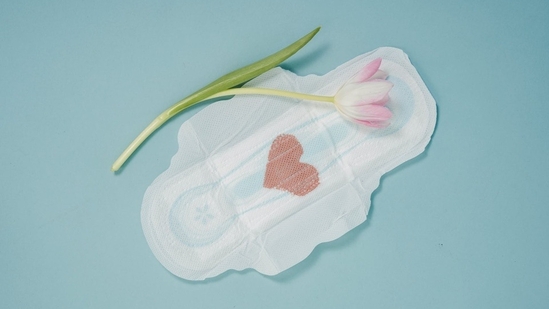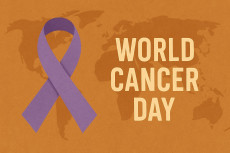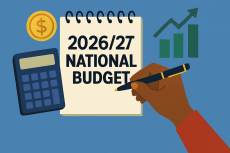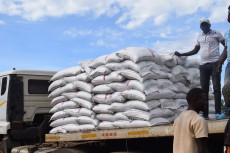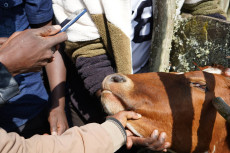- The day is observed to mitigate the stigma and silence surrounding menstruation and to ensure that no girl or woman is held back in any way because of menstruation.
World Menstruation Hygiene Day is commemorated every year on 28th May. The main objective of the day is to create awareness of the importance of menstrual health and hygiene for girls and women across the globe.
The day marks a global effort geared towards breaking taboos, promoting education and advocating for period-friendly infrastructure and access to crucial menstrual products.
The day is observed to mitigate the stigma and silence surrounding menstruation and to ensure that no girl or woman is held back in any way because of menstruation.
On this particular day, the world mobilizes civil society organizations, government agencies, media, the private sector and individuals in a collaborative effort to ensure the objective of the day is realized through the guidance of the unique theme provided every year.
This year's theme (2025) is "Together for a #PeriodFriendlyWorld,"; it emphasizes the need for safe, reliable, and affordable menstrual products. It also emphasizes observance of privacy and access to sanitation facilities, as well as education about menstruation.
Read More
Poor menstrual health and hygiene undermine fundamental rights, worsening social and economic inequalities as well as undermining human dignity.
As of today, research shows that approximately 800 million people are menstruating. This simply means around 800 million people are navigating a bodily function that is as natural as breathing. Regardless, the process is treated with silence, shame and neglect in many parts of the world. World Menstruation Day reminds us to look back and meditate on how far we have come and where we are going.
Kenya as a country has taken the initiative by taking necessary steps like distributing sanitary pads in schools, a step taken by the government; there are community-led initiatives like tackling stigma associated with menstruation, as well as innovating sustainable menstrual products.
In 2020, Kenya launched its Menstrual Hygiene Management Policy (2019 - 2030). This is a significant milestone geared towards integrating menstrual health into national policies and government guidelines.
The policy was birthed after so many years of advocacy by civil society organizations, gender champions, researchers and community groups who pushed for the agenda to be recognized as a public health and human rights issue.
Before the onset of the policy, Kenya ad made headlines as being among the few African countries to eliminate tax on sanitary pads in the year 2004. In 2024, the government returned the taxing of menstrual products. The move sparked public concern and advocacy pushback, with many highlighting how such a reversal was going to undermine many years of progress in promoting menstrual health among all.
In 2011, the Kenyan government took the step of distributing free sanitary products in public primary schools in an effort to address period poverty and keep girls in school throughout. Although the initiative marked significant progress, it has undergone many challenges, inconsistencies in distribution, lack of enough toilets and disposal facilities, among other critical components for dignified and hygienic menstrual care.
Non-Governmental Organizations have also participated in the advancement of menstrual health in Kenya. They have been helpful in filling gaps left by government programs.
These organizations have done so through school-based initiatives and distribution programs that include comprehensive menstrual health education, advocacy and life skills. These organizations include ZanaAfrica Foundation, ActionAid Kenya, UNFPA, and Kakenya’s Dream.
Local menstrual hygiene materials like SoftCare have emerged to offer affordable and eco-friendly alternatives fitting the Kenyan context.
Conceivably, growing public disclosure from national media campaigns to grassroots community dialogues is the most promising aspect. This should steadily break the silence around menstruation and reframe it as an issue of dignity, public health and rights.
However, to date, periods are still a source of missed opportunities, indignity and discomfort. Access to basic products for menstrual health is uneven; education is patchy, and critical conversations around the topic are only starting.
Therefore, despite the growing momentum, critical gaps in menstrual health still persist locally and globally.
Menstrual hygiene should evolve beyond the basics of period management; it should become a catalyst for broader dialogues about dignity, health and gender equity. Researchers, entrepreneurs, and youth advocates in Kenya and the globe should advocate and reframe menstruation as a human right, emphasizing empowerment and inclusivity.
As we celebrate today's World Menstruation Hygiene Day, may it sink deep in us that it is not a day to remind the world that periods exist. It's about making menstruation be recognized as a window into gender justice, innovation and public health.
The reason is that today, 800 million are menstruating; tomorrow, the same number will menstruate; the day after tomorrow, the same will happen, and the cycle will continue. It’s time to add the power of knowledge, choice, dignity and voice to the pads we usually give.

